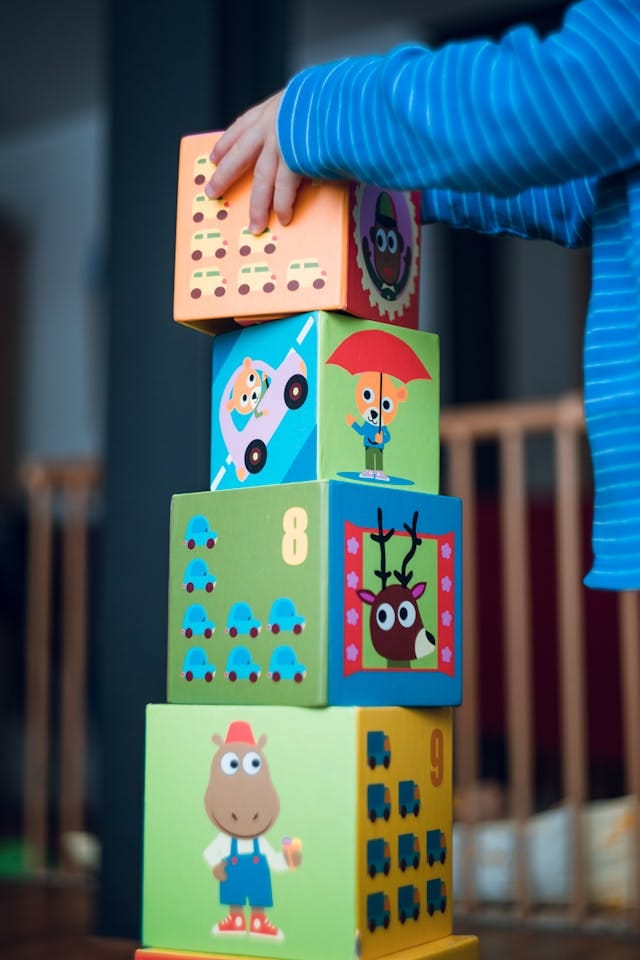
which is an effect of positive parenting on a child : Every educator can apply the principles of positive parenting by effectively responding to the child’s needs and feelings and encouraging desired behavior with positivity. Although balancing love and boundaries can sometimes be a challenge, listening and communicating effectively with a child can facilitate this process and create a healthy and encouraging parenting environment.
Of course, dealing with unwanted behavior can sometimes be tiring, but by using constructive criticism and directing the child toward more positive behavior, these experiences can be transformed into opportunities for learning and growth for the child and the educator alike.
what is positive parenting

parenting skills training
Instilling a sense of structure and clear guidelines in a child’s daily routine is essential for their overall development. This approach not only helps them delineate boundaries but also fosters a clear understanding of daily expectations, thereby cultivating a sense of security and stability. It’s crucial, however, that these rules are adaptable and tailored to meet the individual needs, temperament, and developmental stage of the child.
Creating an environment that is both safe and intellectually stimulating plays a significant role in a child’s growth. When children feel assured that they are in a secure and nurturing space, they are more likely to venture out, explore their surroundings, and embrace new experiences with confidence. This sense of safety emboldens them to push their limits and discover new aspects of the world around them.
Moreover, encouraging children to try new activities is pivotal in their skill development and the discovery of personal interests. When a child perceives that their abilities are recognized and that they are supported in taking on challenges, their self-esteem flourishes. This boost in confidence is instrumental in their overall development, allowing them to thrive and reach their full potential.
In essence, striking a harmonious balance between maintaining structure and encouraging exploration is key to fostering a child’s holistic and healthy development. This balanced approach ensures that children feel secure yet free to grow, ultimately leading to well-rounded and resilient individuals.
Grasping the concept that children often test boundaries and derive learning from their own experiences is a cornerstone of effective parenting. When children push limits, it’s not out of a desire to be rebellious or confrontational. Rather, it is their way of comprehending what is permissible and what isn’t, and of making sense of the world around them.
Establishing boundaries involves consistently reinforcing desired behaviors and articulating rules in a clear and unwavering manner. For children to internalize what is acceptable behavior, they need to hear the rules repeatedly and be reminded of them regularly. Consistent and clear communication of boundaries provides children with a sense of security and stability, which is essential for the development of self-discipline and social skills.
Furthermore, parents must be willing to explain the rationale behind these rules and to offer guidance and support as children seek to understand them. By providing explanations and direction, parents help children grasp the reasons for the rules, thereby promoting a deeper understanding and mutual respect between parent and child. This approach not only clarifies expectations but also strengthens the parent-child relationship by fostering a sense of trust and cooperation.
In essence, balancing the enforcement of boundaries with empathetic explanations and support cultivates an environment where children feel safe and understood. This balanced approach aids in nurturing responsible, respectful, and well-adjusted individuals who are equipped to navigate the complexities of their social environments.
Define boundaries
which is an effect of positive parenting on a child?
how to build a good relationship with your child
Encouraging effective communication between a child and their parents is a cornerstone of positive parenting. When children feel that their voices are heard and their needs are understood, they develop a profound sense of security and confidence. Additionally, motivating and responding to a child’s needs significantly reinforces their feelings of love and care.
Being attuned to a child’s needs and non-verbal signals, such as body language and emotions, is vital. Responding with empathy and affection to these cues strengthens the bond between you and your child, fostering a secure environment where they feel confident in expressing their needs and emotions.
Parents act as partners in the child’s development and growth, and effective listening and responsiveness are essential components of this role. Setting realistic expectations for your child, along with providing positive attention and support, is crucial in promoting their learning and overall development. When you encourage your child to express their understanding and current skills, you offer them the opportunity to showcase what they know and inspire them to learn more.
Clarity and consistency in dealing with your child are necessary for creating a stable and guided environment for appropriate behavior. When your message is clear and consistent, the child understands their boundaries and what is expected of them.
Providing emotional support to your child when they face challenges and frustrations helps them develop coping strategies and boosts their self-confidence. By acknowledging their feelings and offering support, the child feels understood and supported in their emotional experiences.
Finally, despite the challenges you may encounter in dealing with your child’s tantrums or intense emotions, maintaining support and calmness in your approach is crucial. Offering support during stressful moments gives the child a sense of security and confidence in expressing their feelings and finding healthy ways to manage them.
By fostering a nurturing environment where communication, empathy, and support are paramount, parents can effectively guide their children through their developmental stages, ensuring they grow into well-rounded and emotionally resilient individuals.
These are valuable tips for understanding the development and needs of young children. Indeed, while 10 minutes may seem short for adults, it is a significant amount of time for young children who are gradually developing their concentration and attention skills.
Forgetting things quickly is natural for children at this age, which is why repetition and reminders of rules and boundaries are essential to reinforce them in their memory.
Talking to the child at eye level and ensuring they hear and understand the message contributes to their comprehension of rules and boundaries. Additionally, developing a conscience and the ability to distinguish between acceptable and unacceptable behavior takes time and repetition.
By maintaining patience and providing ongoing support and guidance, parents can enhance the child’s understanding of boundaries and continuously develop their social and behavioral skills.
Repetition is necessary
which is an effect of positive parenting on a child?
Always look at your child in a positive way
Every child is unique, with a distinctive array of skills, abilities, and interests. Recognizing and respecting these differences is fundamental in effective parenting.
By consistently observing your child and paying attention to what they excel at and what they can accomplish, you can identify their strengths and encourage them in those areas. This approach does not mean neglecting areas where they may require additional support. Instead, by focusing on their strengths and positives, you can help build your child’s self-confidence and enhance their enthusiasm for developing their skills.
Understanding your child well allows you to provide tailored guidance and support that aligns with their individual needs and developmental stage. This personalized approach ensures that the support and encouragement you offer are most effective, fostering a nurturing environment where your child can thrive.
In essence, by appreciating and nurturing your child’s unique qualities, you can contribute significantly to their overall growth and development. This approach not only builds their confidence but also motivates them to explore and develop their abilities, leading to a more fulfilling and balanced upbringing.



which is an effect of positive parenting on a child?
how to raise a kind child
Positive parenting is a multifaceted process that necessitates wisdom and a delicate balance between affection and guidance. Ensuring that a child receives love and security is fundamental in laying the groundwork for developing a balanced and optimistic personality in the future. When children feel supported and cared for by their parents and caregivers, they cultivate self-confidence and the ability to express their emotions effectively.
Affection alone is not enough; providing positive attention and acknowledging the child’s achievements are vital in boosting their confidence and fostering a positive outlook. Children experience pride and self-satisfaction when their efforts and accomplishments are recognized, which in turn motivates them to continue progressing and growing.
Setting clear boundaries and establishing rules are equally important. These guiding structures offer the necessary direction and balance in the child’s life. Clear and consistent communication about the rules helps children understand their limits and encourages them to engage in appropriate behaviors.
Effective communication with children, coupled with an understanding of their emotions and needs, is key to building a strong and healthy relationship between parents and their children. Parents should strive to be available, engaged, and supportive of their child’s explorations and experiences. This involvement not only strengthens the bond between parent and child but also enhances the child’s confidence and openness.
In conclusion, positive parenting is about achieving a harmonious balance and exercising wisdom in addressing a child’s emotional, social, and educational needs. By providing appropriate support and guidance, parents can help their children develop their abilities and talents in a positive and healthy way. This comprehensive approach ensures that children grow into well-rounded individuals equipped to face life’s challenges with confidence and resilience.
These are excellent tips for raising a child positively. Here’s a further breakdown of some of the key points:
Provide Your Child with Affection and Security:
Establishing a strong and loving bond with your child is a fundamental aspect of positive parenting. When a child knows they are loved and accepted, they feel secure and confident, which forms the basis for healthy emotional and psychological development.
Give Positive Attention and Respond Enthusiastically:
Offering positive attention and praising your child’s achievements plays a vital role in building their self-esteem. Enthusiastic responses to their efforts encourage them to strive for further accomplishments, reinforcing a cycle of positive reinforcement and motivation.
Clarify What Your Child Sees or Does:
Helping your child understand the relationships between objects and events in their environment aids in their cognitive development. This clarification fosters critical thinking skills and enhances their comprehension of the world around them.
Do Not Force Your Child to Grow at a Set Pace:
Respecting your child’s individual growth trajectory is essential. Each child develops at their own pace, and forcing a standardized rate of development can hinder their natural progress. Instead, guide and support them according to their unique abilities and interests, allowing their skills to flourish naturally.
Provide Clear Rules:
Establishing and consistently enforcing clear rules is crucial for guiding your child’s behavior. Clear communication of these rules helps children understand their boundaries, promoting self-discipline and a sense of security.
Be Involved and Available:
Active participation in your child’s experiences and discoveries is important for building a strong relationship. Being available and engaged encourages your child to explore and learn, fostering a sense of trust and confidence in their abilities.
Encourage Your Child with New Activities:
Creating a stimulating environment and encouraging your child to try new activities supports their overall development. This approach not only enhances their skills but also satisfies their curiosity and physical needs, contributing to a well-rounded upbringing.
Positive parenting demands patience, guidance, and continuous support from parents and caregivers. Implementing these tips helps create a nurturing environment that supports your child’s positive growth and development. By fostering a balance of affection, clear rules, and encouraging exploration, you can help your child become a confident, well-adjusted individual.

which is an effect of positive parenting on a child?
why is positive parenting important
Many families opt for positive parenting for several reasons:
Building a Strong Bond with the Child:
Positive parenting fosters a secure and trusting relationship between parents and children. By providing support, love, and attention, the child feels safe and cherished, which enhances emotional bonds.
Comprehensive Child Development:
Focusing on positive guidance and reinforcement leads to the development of the child’s personality and the enhancement of their social, emotional, and cognitive skills. In a supportive and positive atmosphere, the child can achieve their full potential and grow properly.
Enhancing Positive Self-Image:
Praise, appreciation, and attention help bolster the child’s positive self-image. Feeling respected and valued increases the child’s self-confidence and enhances their sense of self-worth.
Preparing the Child for Major Life Events:
A positive and empathetic environment prepares the child to face difficult events, such as the loss of a family member. The child feels supported and secure in such circumstances, helping them adapt and handle challenging situations appropriately.
Reducing Behavioral and Emotional Problems:
Positive guidance and attention to the child’s personal development are effective means of reducing behavioral and emotional issues. The child becomes better equipped to deal with challenges and stress positively, decreasing the likelihood of behavioral problems.
Enjoying Parenting:
Parents find joy and satisfaction in raising their children when they adopt positive parenting. They experience happiness and pride as they witness their children’s healthy and positive growth and development.
Overall, choosing positive parenting is a preferred option for many families. It leads to building strong and healthy relationships and fostering comprehensive child development. By creating a nurturing and supportive environment, parents can ensure their children grow up to be confident,
well-rounded individuals, ready to face life’s challenges with resilience and positivity. This approach not only benefits the children but also brings immense joy and fulfillment to the parents,
making the parenting journey a rewarding experience for the entire family.
Ideal family practice
Perfect parenting is an unrealistic concept; parenthood largely relies on continuous experience and learning. When a child comes into the world, parents find themselves in a situation
that demands constant adaptation and learning without a specific guide or guarantees.
Parents learn as they go along, often discovering their mistakes and learning from them. This natural process allows them to grow and evolve over time, strengthening the bond between themselves and their children.
Despite the occasional challenges, parenthood brings immense joy and fulfillment. Through interacting and experiencing life with their children,
parents learn how to communicate and engage effectively, building a strong and resilient relationship with them.
Therefore, parenthood is not merely a clear-cut path or a specific plan but an ongoing journey of experience, learning, and development, all rooted in love.
which is an effect of positive parenting on a child?
Read more :
